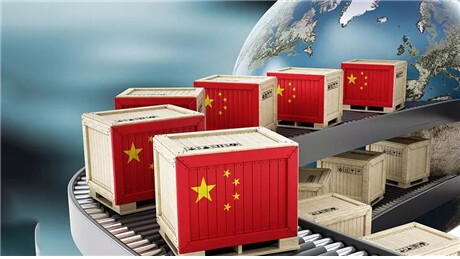
Daegu, South Korea – The meteoric rise of China's manufacturing sector, fueled by government support, is casting a long shadow over South Korea's industrial heartland of Daegu and Gyeongbuk. As Chinese firms aggressively undercut prices and enhance their technological capabilities, local businesses are grappling with a crisis reminiscent of the textile industry's struggles in the face of Chinese competition.
A recent survey by the Bank of Korea revealed that "intensified competition due to China's overproduction and low-cost exports" was the most significant concern for South Korean exporters. A significant portion of respondents expressed alarm over the narrowing technological gap between South Korean and Chinese firms, particularly in sectors like secondary batteries, machinery, and steel.
The crisis is particularly acute in Daegu and Gyeongbuk, where businesses are increasingly pessimistic about their export prospects to China. A survey conducted by Daegu Techno Park found that over half of local companies expect a decline in their exports to China. Conversely, many companies anticipate no change or even an increase in imports from China, citing the difficulty in finding suitable alternatives to Chinese-made intermediate goods.
The situation in Gyeongbuk is equally dire, with the region's steel exports plummeting by 37% over the past five years. The recent surge in low-priced Chinese steel exports has forced domestic steelmakers to curtail production.
Experts warn that China's vast domestic market and government support have enabled its manufacturing sector to grow exponentially. "China's products are not only cheaper but also of higher quality," said Yoon Sang-hyun, a researcher at the Daegu Policy Research Institute. "To stay competitive, South Korea must focus on technological innovation and accelerate the commercialization of cutting-edge technologies. This requires a supportive regulatory environment and government incentives."
Potential Solutions and Future Outlook
To address the challenges posed by China's growing industrial might, South Korean policymakers and businesses must consider the following:
Technological Upgrading: Investing heavily in research and development to develop niche technologies and high-value-added products.
Diversification of Markets: Expanding export markets beyond China to reduce dependence on a single market.
Strengthening Supply Chains: Building resilient supply chains that are less vulnerable to disruptions.
Government Support: Providing targeted support to small and medium-sized enterprises, including financial assistance, tax breaks, and regulatory reforms.
Focus on Niche Markets: Identifying and targeting niche markets where South Korean companies can maintain a competitive advantage.
As the global manufacturing landscape continues to evolve, South Korea must adapt to stay competitive. By fostering innovation, diversifying markets, and strengthening its industrial base, the country can mitigate the challenges posed by China and secure its position in the global economy.
[Copyright (c) Global Economic Times. All Rights Reserved.]




























